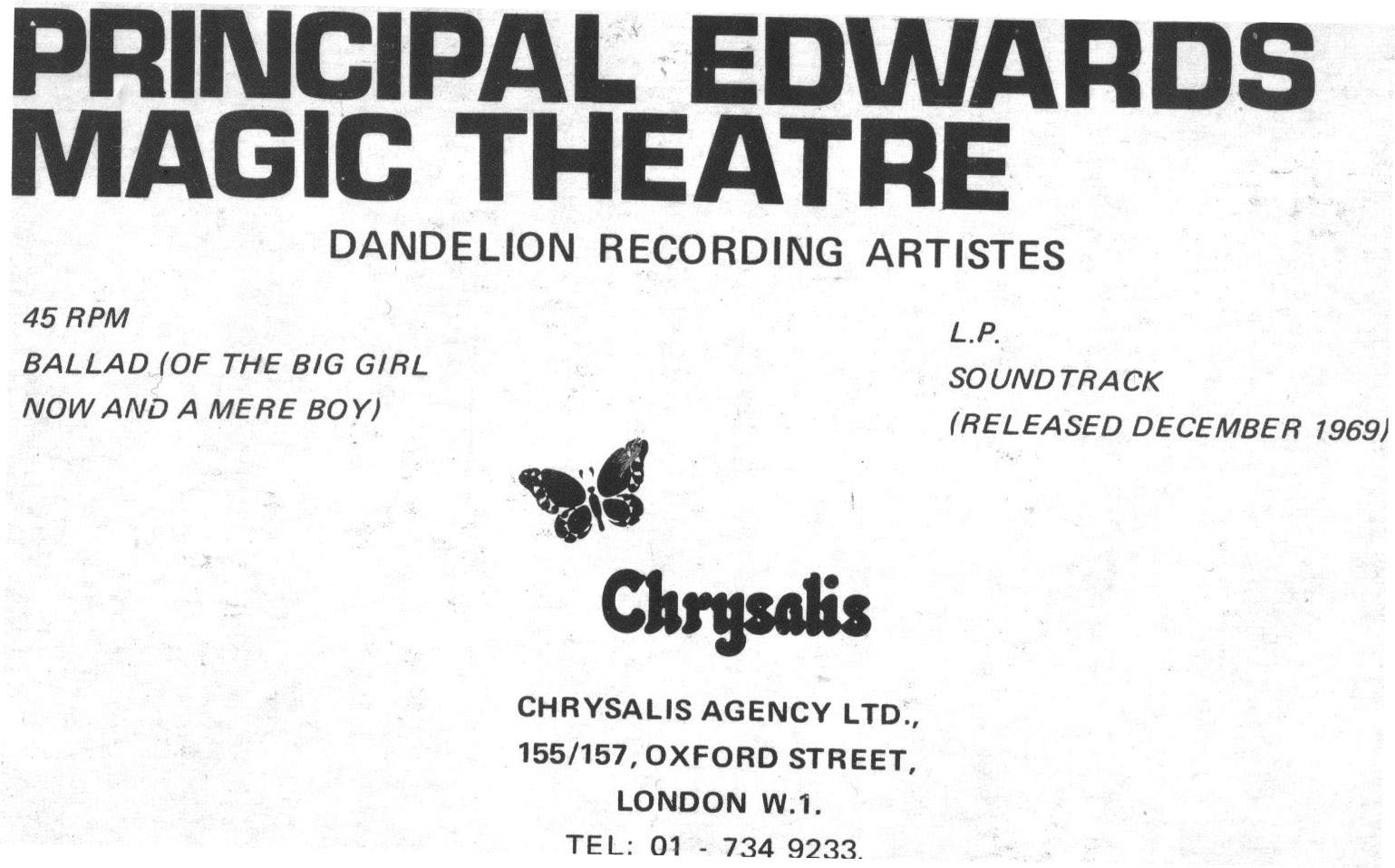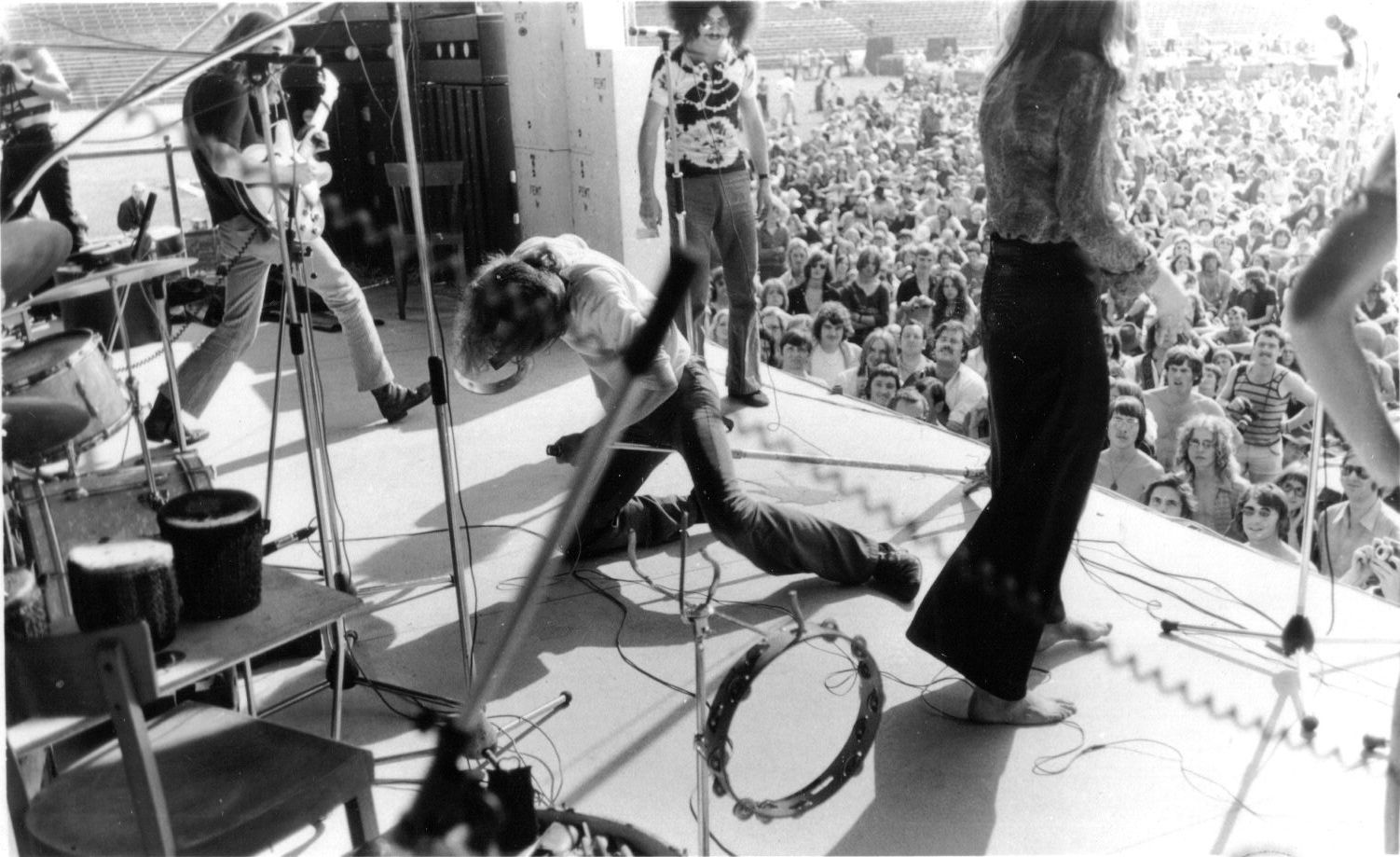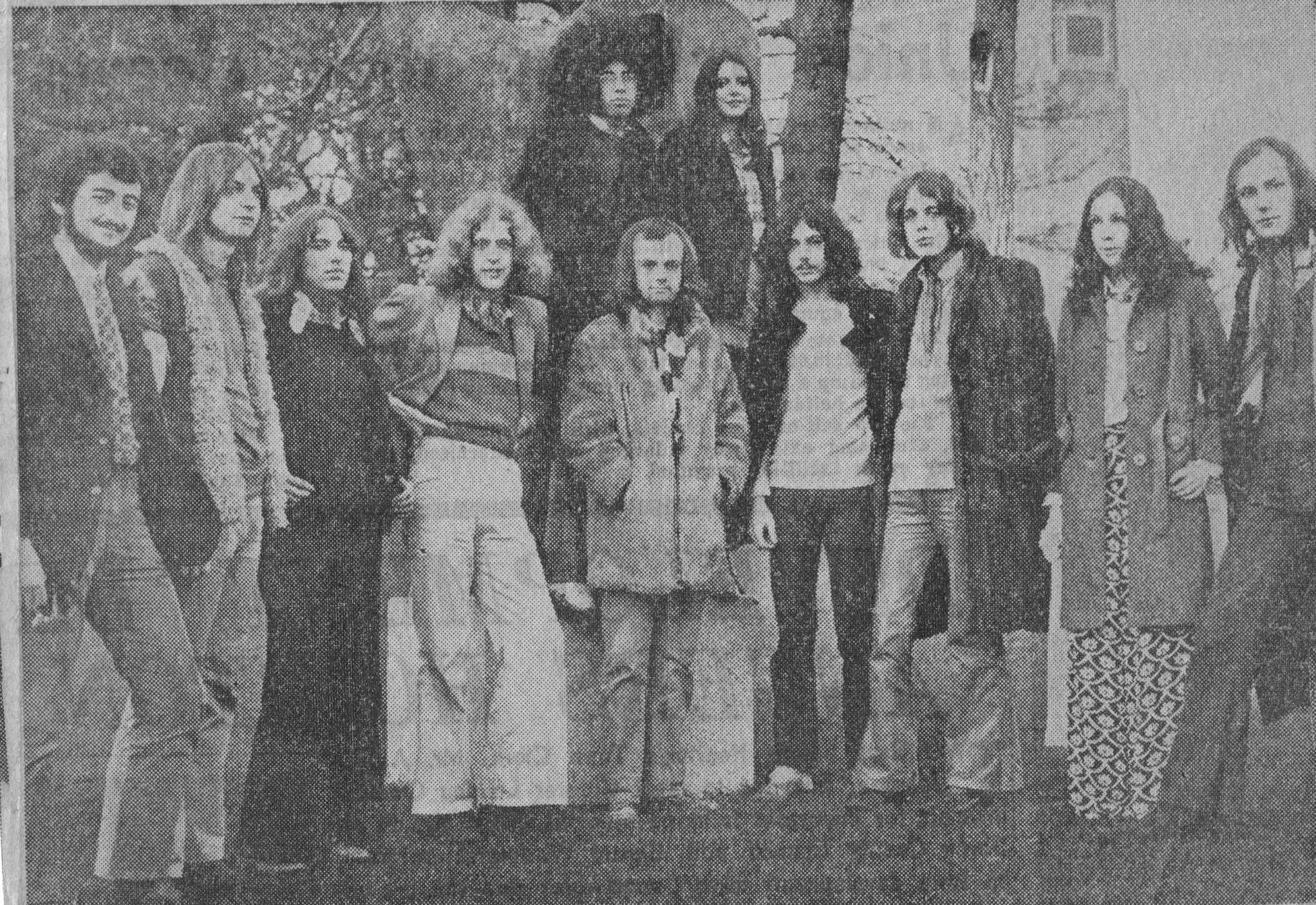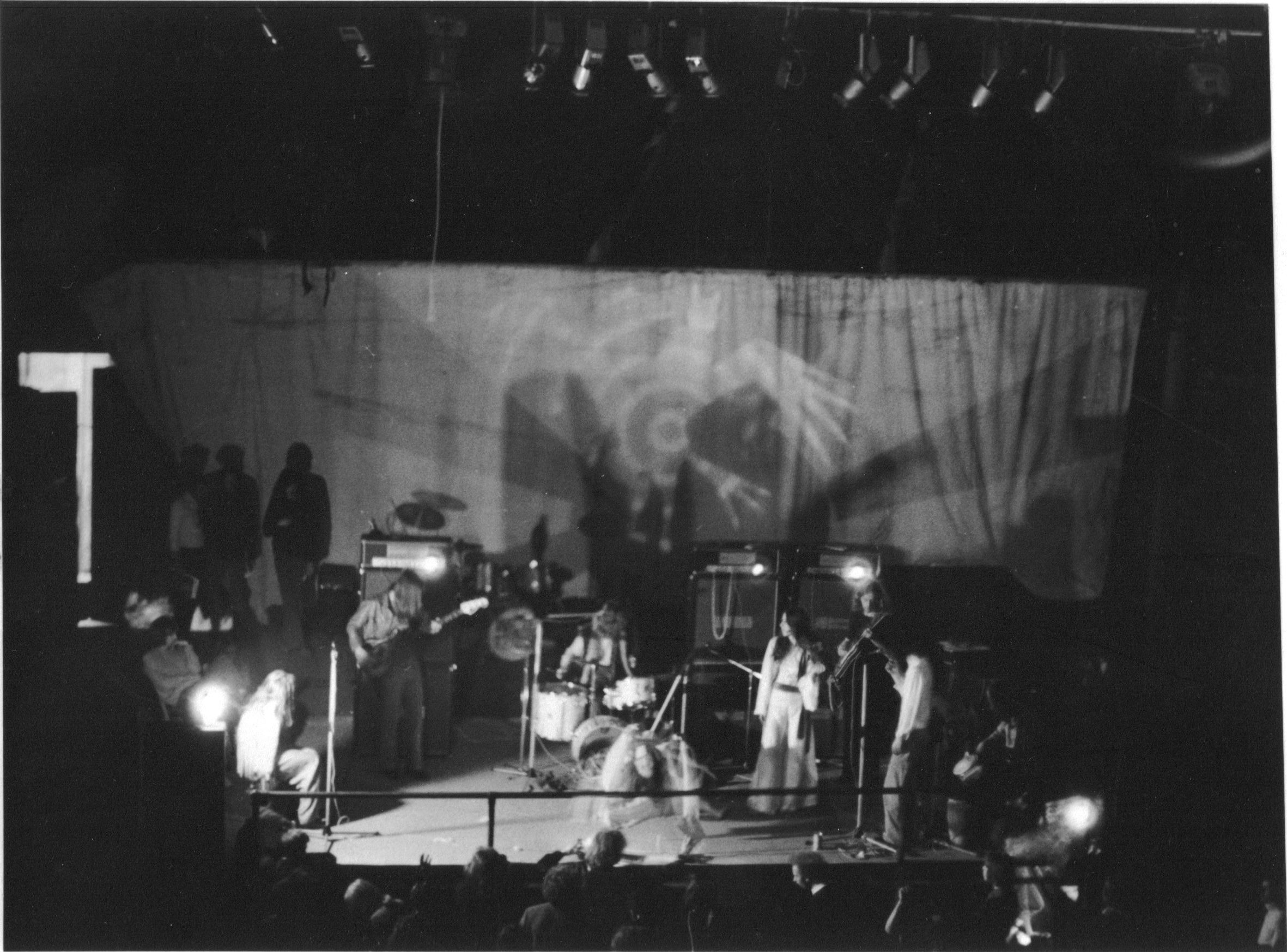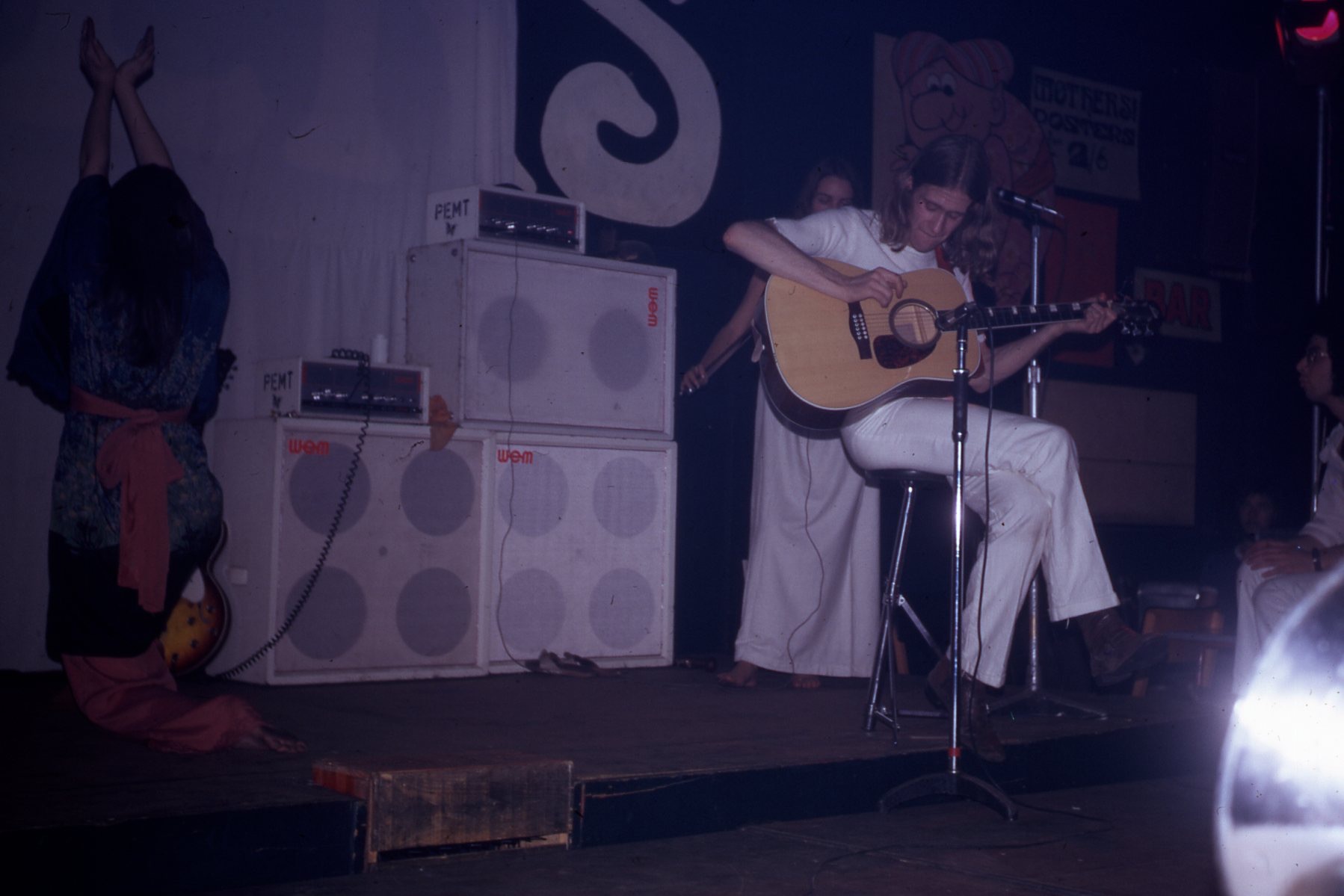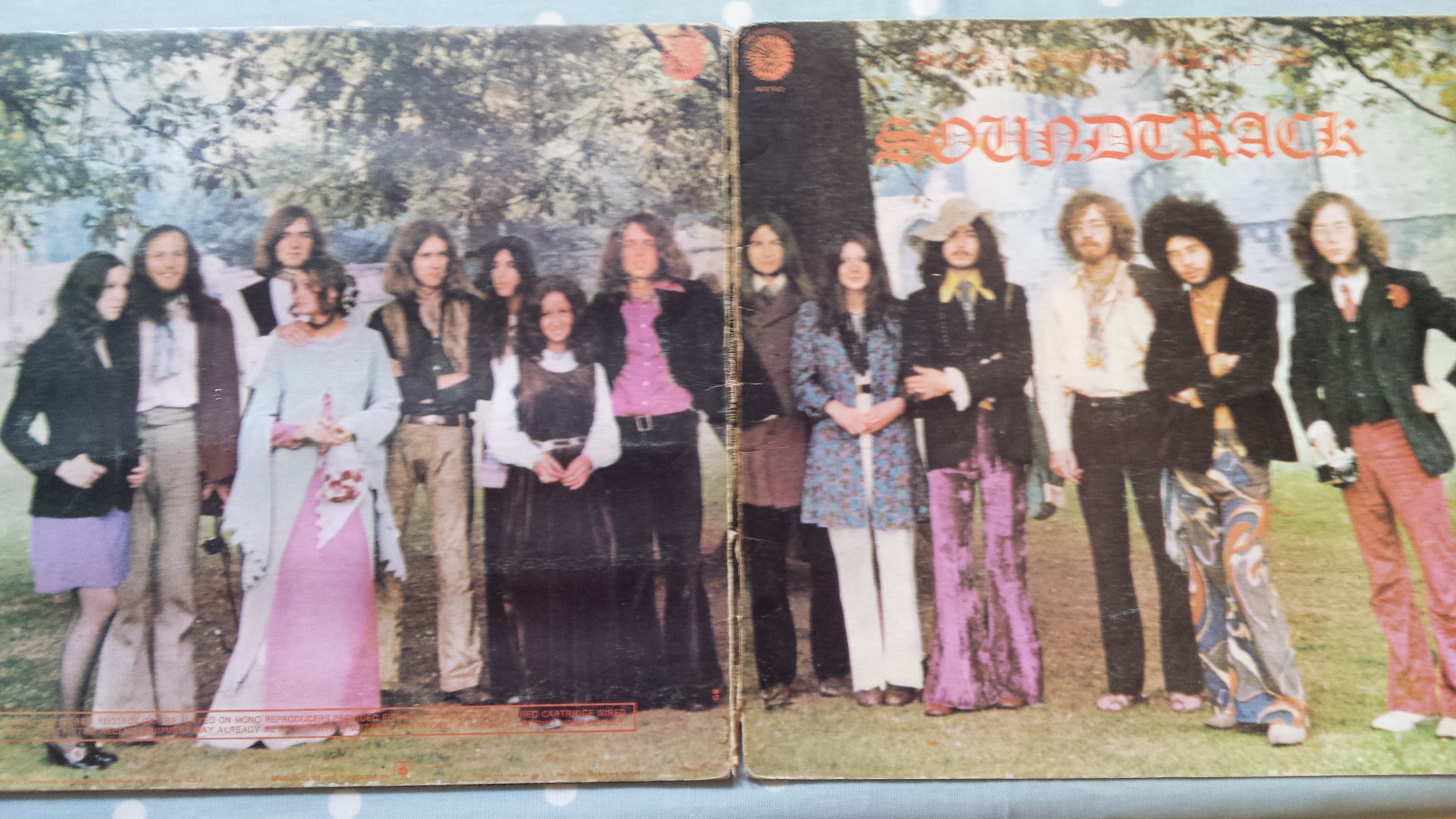Principal Edwards Magic Theatre
PEMT
During the creation of our gig listing, one band were repeatedly cited in concert memories from the late 60s and early 70s. Principal Edwards Magic Theatre, a band known by many alumni as they not only played on campus but formed here as well.
The group was one of the first signed to John Peel's Dandelion Records and their single, ‘The Ballad of a Big Girl Now’, was released in 1969. Following the single, Principal Edwards Magic Theatre released two albums – ‘Soundtrack’ and ‘The Asmoto Running Band’ - the second of which was produced by Nick Mason of Pink Floyd. Between 1968 and 1971, the band opened for several acts including Pink Floyd, Led Zeppelin, and Fleetwood Mac.
In recent years, all Principal Edwards Magic Theatre records have been re-released several times, finding new appreciation around the world.
We sought out some of the original members of the band to ask them about some of their memories of that time - Root Cartwright, David Jones, Eva Darlow, and Lyn Edwards.
What made you choose Exeter in the first place?
David: For me it was the very ornery reason that Exeter was the only university to make me an offer! Seven members of PEMT (Root Cartwright – guitars, composer; Viv McAuliffe – vocals; Lyn Edwards – drums; Eva Darlow – dancer; Monica Nettles – dancer, lyrics; Les Adey – lightshow; and myself, David Jones – percussion, lyrics) were Exeter students. Martin Stellman (vocals, lyrics) was at Bristol University. One other (Chris Runciman – lightshow) was living in Exeter, and a little later we were joined by Jeremy Ensor (bass) who moved from Portsmouth.
Eva: I chose Exeter for several reasons - first the course was attractive - German with a semester in Germany, not a year; but then I did know it was where I wanted to be because of the glorious train journey down there and walking into Devonshire House with my ma when I was down for interview - so light and bright! Oh yes and I got a really good offer!
Lyn: I chose Exeter because it sounded very different from South London - alright, Norbury to be precise - and was the sort of place people went on holiday. Also, I'd just read an article in the Sunday Times Colour Supplement that said there were more females ("chicks") than males. It was 1967 to be fair. Oh, and the course looked ok.
Root: For me it was a suitably long distance from home and I did want going to university to be a clean break.
How did the band get started?
Root: As with many such enterprises it began on a social level – you start meeting people and getting to know them, and over time there emerges a nucleus of people with various interests and talents – music, dance, writing, lightshows etc who all fancy having a go at putting something together. There’s a kind of naïve energy that propels you at that age, and also at that particular time the music scene and perhaps the culture more generally seemed wide open to ideas and projects that were far from mainstream.
Lyn: I remember tapping along to Root's tunes in our respective rooms in Hetherington House, also housing David Jones, and feeling inspired to purchase a pair of bongos @ £9-19-9d from our local record shop. My next Memory is of Viv joining in on Hey Joe, but I'm not sure how we actually met. I think this was the earliest version of the musical Principal Edwards Experience.
So many people have mentioned your gigs. What was it like playing at the university?
Root: The few gigs we did around campus at the start were very ad hoc affairs – just trying out our latest songs in front of audiences – which seemed to go OK as far as I can remember. We also staged occasional “happenings” (this was the 60s!) in a room in Devonshire house, with improvised music and dance, readings and curious experiments with the furniture. These attracted various kinds of attention.
David: … and we had a very 1960s freaky lightshow.
Eva: Going back to perform at Exeter after we had left for what started out as a sabbatical year was pretty scary. By then our work had become complex and multi-layered, blending music, lightshow, choreographed dance and poetry, with costumes and makeup that were fantastic (literally). The choreography was set, not free dance, telling the story of the music and words in dance and mime.
David: We also came back to do a quite ambitious extended show at the Northcott Theatre. As far as I remember, it was well attended, so I’m pretty sure we had a decent following at the uni.
Lyn: The early gigs were extremely informal and could pretty much happen anywhere as we had no need of amplification. Much later on, when PEMT was properly up and running and we did these couple of nights in the Northcott Theatre it was a whole different experience.
Where did the song writing ideas come from?
Root: Most of the early songs began life as poems – everyone’s a poet at that age. I’d written music before in various genres and had experience of playing various different kinds of music, so it was a fascinating challenge to try to find musical forms to fit a wide variety of lyrical themes and forms whilst also bearing in mind the possibilities of theatrical presentation. I think because of this it is quite hard to pin down a “typical” PEMT song – certainly the lyrics ranged from the personal to the epic, with some early eco-consciousness thrown in.
David: Some of my lyrical ideas came from reading English in the Sixth Form and at university. I wrote the words for a song called ‘Pinky – A Mystery Cycle’ (I have no idea what Pinky had to do with anything!), which was on our first LP and had some distinctly Miltonesque bits – something something “vacant interlunar shelf” etc! For me that song became a prototype for many of the performance ideas we went on to create, telling musical stories with strong visual clues that extended naturally into expressive dance and stage lighting.
You were signed to John Peel’s record label – how did that come about?
Root: Our first “proper” gig was at Portsmouth Guildhall, at an event called Dance of Words organised by Jeremy Ensor, who subsequently joined the band playing bass. John Peel was there and was greatly taken with our performance. He began to encourage people to book us and invited us on to his BBC show. It therefore seemed natural that when he decided to start Dandelion records that we would record for it.
Lyn: We actually first met John Peel when he brought Tyrannosaurus Rex down to play in Duryard Halls, I think December 1967, and a couple of us gate-crashed the Social Sec's room afterwards to tell the celebs we had started a little band. Not sure they were terribly impressed and whether it anything to do with getting our first real gig at the Dance of Words.
What were some of the most memorable gigs you played around the country?
David: A particular high point I recall was in 1973 at a very big indoor festival in a vast old subterranean bus garage in Leeds. We shared the bill with Roxy Music, Vinegar Joe and the Christine Perfect Band and it felt like we had blown them all away. Then out came a review in the Melody Maker which said, yup, we had. Nice feeling.
Eva: We moved to a farmhouse near Kettering for ease of access to the whole country, after a spell on John Peel’s floor, shared with Marc Bolan! We performed at so many venues, large and small, with a lot of famous bands of the time. The Roundhouse, the Albert Hall, the Marquee; T Rex, the Stones, Arthur Brown, Pink Floyd. I remember sharing a dressing room with David Bowie! We did so many May Balls, performing at 3am.
Lyn: A gig that I particularly remember was at the Albert Hall in 1969 with Georgie Fame, Ten Years After and Family. Particularly as at the time I didn't own a drum kit and had to borrow Rob Townsend's. Peel said we were great and Georgie Fame was as exciting as a cold cup of tea. Bit harsh. Incidentally a friend of mine put on a gig by Georgie Fame exactly 50 years later 2019 and I'm sure he did virtually the same set.
What have you been doing since PEMT?
Eva: After the sabbatical year Lyn, Les and I returned to Exeter to finish our degrees, while the others dropped out of uni and continued with the band. I went on to train as a professional dancer at the London Contemporary Dance School and worked with Stomu Yamashta, East Anglian Dance Theatre, Monstrous Regiment, Kickstart and various others, and choreographed in rep companies. I worked for many years as a dance teacher in adult education. I finally ending up in senior management in social services – a big leap!
David: I left the band in 1974 and have barely touched a percussion instrument since then. I was director of an arts centre in St Albans and then tour manager of the Arts Council-funded Touring Theatre of Pneumatic Art performance arts group. After that I became a travel guide editor and ended up setting up my own digital media business back in Wales, where I originally came from.
Root: I spent some years as a freelance musician, but missed the creative element I’d enjoyed with the band. So in a complete change of direction and in search of a more reliable income I set up a gardening business. I also pursued a serious interest in photography and my work was widely exhibited. More recently I have rediscovered an interest in music and spend my time writing pieces for acoustic guitar and banjo.
Lyn: Since PEMT and despite obtaining a French degree I have made my living playing the drums in bands, TV, radio. theatre and most recently teaching. In fact I've got a gig tomorrow night if anyone's interested... !
All images copyright Principal Edwards Magic Theatre, shared with kind permission. View more at: http://www.principaledwards.com/
View Principal Edwards Magic Theatre on French TV in 1969.
Read at article in International Times from 1970.


